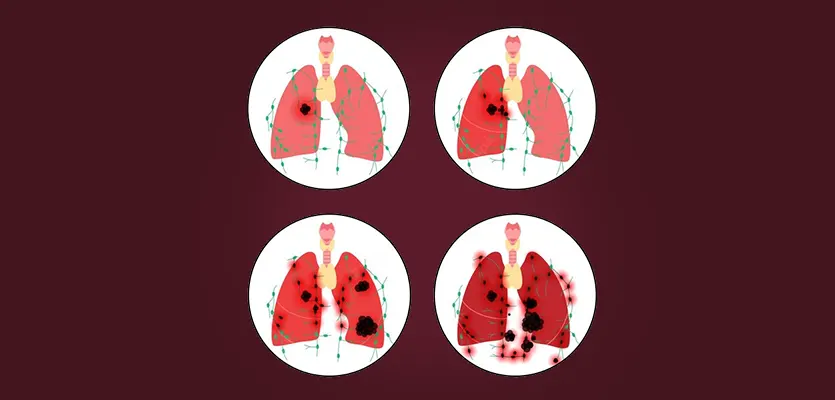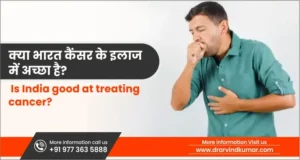Lung cancer is a serious diagnosis, and its essential to understand the various stages of the disease. This will help you know what to expect and how to treat your loved one best. In this blog post, well discuss the four main stages of lung cancer. Well also talk about the symptoms and treatments for each stage. If you have any questions, please don hesitate to contact us. Thank you for your interest in our blog!
What is Lung Cancer?
Lung cancer is a type of cancer that begins in the lungs. The lungs are two spongy organs in the chest that take in oxygen and release carbon dioxide. Cancer is a disease in which cells in the body grow out of control.
Types of Lung Cancer
The main types of lung cancer are small cell lung cancer (SCLC) and non-small cell lung cancer (NSCLC). SCLC is a more aggressive form of lung cancer that typically spreads more quickly than NSCLC. NSCLC is the more common type of lung cancer, and it tends to grow and spread more slowly than SCLC.
Lung cancer staging can be complex, and its important to work with a team of experienced doctors treating lung cancer. They will take into account the type of lung cancer, the tumor size, and whether the cancer has spread to other parts of the body. Based on this information, they will develop a treatment plan tailored to your individual needs.
Meet Dr. Arvind Kumar today to get the best treatment for lung cancer. His team of expert doctors will develop a personalized treatment plan for you.
Also Read : Screenings and Second Opinions for a Lung Cancer Diagnosis and Treatment
Stages of Lung Cancer
What Is the TNM System?
The TNM system is a way of classifying the extent of cancer spread. The letters stand for the following:
T: tumor size
N: spread to nearby lymph node
M: metastasis (spread to distant organs)
The TNM system helps doctors determine the stage of lung cancer, which in turn helps them make treatment decisions.
Small-Cell Lung Cancer Stages
There are two stages of small-cell lung cancer (SCLC):
Limited stage: The cancer is confined to one side of the lung, possibly near lymph nodes. It hasn’t spread to both lungs..
Extensive stage: Cancer has spread to other parts of the body, such as the brain, liver, or bones.
Stages of Non-Small Cell Lung Cancer
There are four main stages of lung cancer:
Stage 0: Cancer cells are found in the lining of the airways, but they have not spread to nearby tissue.
Stage 1: Cancer cells have spread to nearby tissue but are still confined to one lung.
Stage 2: Cancer cells have spread to lungs and nearby lymph nodes.
Stage 3: Cancer cells have spread to central lymph nodes.
Stage 4: Cancer cells have spread to other parts of the body, such as the brain or liver.
Lung cancer is usually diagnosed at an advanced stage when it has already spread to other parts of the body. This is because lung cancer typically does not cause symptoms in its early stages. By the time symptoms do develop, cancer has usually already spread.
Symptoms of lung cancer depend on the stage of the disease. In its early stages, lung cancer may not cause any symptoms. As the disease progresses, symptoms may include:
- Coughing up blood
- A persistent cough that doesn go away
- Shortness of breath
- Wheezing
- Chest pain
- Loss of appetite
- Weight loss
- Fatigue
Treatment for lung cancer also depends on the stage of the disease. In its early stages, surgery may be an option. However, in most cases, lung cancer is diagnosed at an advanced stage, and surgery is not possible.
Treatment options for advanced lung cancer include:
- Chemotherapy: Drugs that kill cancer cells are given through an IV. They travel through your body to kill cancer cells all over.
- Radiation therapy: High-energy beams, such as X-rays and protons, are used to kill cancer cells. The beams can be directed from outside the body (external beam radiation therapy) or from inside the body (internal beam radiation therapy).
- Targeted therapy: Drugs that target specific mutations in cancer cells are used to kill the cancer cells. These drugs can be given intravenously (IV) or orally (by mouth).
- Palliative care is also an important part of the treatment of lung cancer. Palliative care is focused on relieving the symptoms of the disease and improving the quality of life. It is often used with other treatments, such as chemotherapy and radiation therapy.
If you have been diagnosed with lung cancer or are concerned about your risk for the disease, please contact us. We can help you understand your treatment options and ensure you get the care you need. Thank you for your interest in our blog!
Why choose Dr. Arvind Kumar for lung cancer treatment
- Dr. Arvind Kumar is one of the leading lung cancer surgeons in India with more than two decades of experience.
- He has performed over a thousand successful lung cancer surgeries and has patients from all over the world.
- He has a team of expert doctors who will develop a personalized treatment plan for you.
- He uses the most advanced technologies to diagnose and treat lung cancer.
- He has a success rate of 97% in treating early stages lung cancer patients
- He offers affordable treatment without compromising on quality.
- He provides comprehensive care for his patients, from diagnosis to post-operative care.
- His hospitals are equipped with all the latest facilities and equipment.
What is the cost of lung cancer treatment?
The cost of lung cancer treatment depends on the stage of cancer, the type of treatment, and the hospital you choose. It is advisable to get a quote from the hospital before starting the treatment is advisable.
What are the success rates of lung cancer treatment?
The success rates of lung cancer treatment depend on the stage of cancer, the type of treatment, and the hospital you choose. However, Dr. Arvind Kumar has a success rate of 97% in treating early stages lung cancer patients.
To get more information about lung cancer treatment, please visit our website or call us at +91-9555-9560-60.
FAQs
- What stages of lung cancer are curable?
The chances of a cure are highest when the cancer is caught in stage I or II. However, even if cancer has spread to other parts of the body (stage III or IV), there are still treatments that may help you live longer.
- Does lung cancer spread quickly?
Lung cancer can spread quickly, but it often takes months or even years for cancer to grow.
- What are the first signs of lung cancer?
The first signs of lung cancer may be a cough that doesn’t go away, shortness of breath, pain in the chest, or coughing up blood. However, these symptoms can also be caused by other conditions, so its important to see a doctor if you have any concerns.
- Where is the first place lung cancer spreads?
Lung cancer often spreads to the brain, bones, or liver before it is diagnosed.

.webp)



